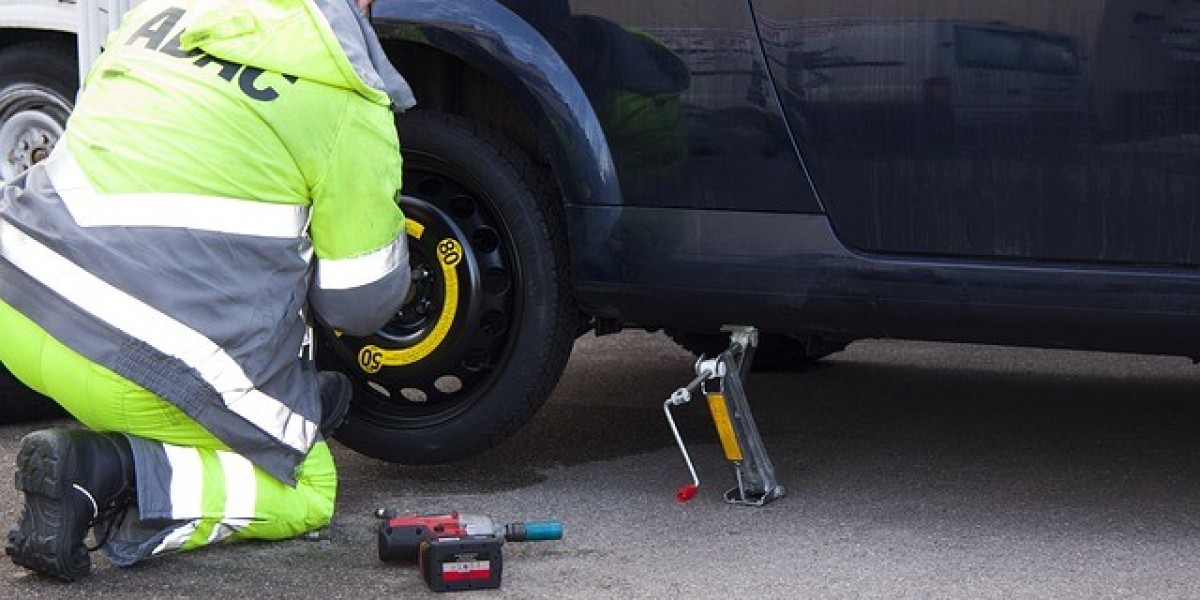Tyres are essential for safety and performance since they are your car's single point of contact with the road. However, tyres can lose their structural integrity and cease to function properly due to a variety of wear and damage. In order to preserve the durability and safety of your tyres, we will discuss the most frequent causes of tyre damage in this article and offer suggestions on how to avoid and manage these Cheap Car Tyres Stockport problems.
1. Sharp Objects And Puncture
Common source: Punctures produced by glass shards, nails, or other sharp items are a common source of tyre damage. These items have the potential to pierce tyre tread and result in gradual leaks or unexpected blowouts.
Preventive measures and suggestions:
Avoid Debris: Exercise caution when driving over building sites, through debris, or close to work zones where there may be sharp items present.
routine inspection Regularly check your tyres for embedded items, and take out any foreign material you discover right away.
Maintain Proper Tyre Pressure: By lessening the chance of things entering the surface of the tyre, adequate tyre pressure can help avoid punctures.
2. Excessive loading
Common Cause: Exceeding the recommended weight limit on your vehicle can place an undue pressure on the tyres, causing rapid wear and even damage.
Preventive measures and suggestions:
Respect Weight Limits: Be mindful of your vehicle's maximum load limit, which includes both people and luggage.
Maintaining adequate inflation is important since underinflated tyres are more vulnerable to damage while towing big loads.
Verify the load ratings: Make sure your tyres have a load rating that is adequate for the weight they will be carrying.
3. Underinflation
Common Cause: When a tire's air pressure is inadequate to adequately sustain the weight of the vehicle, underinflation of that tyre results. Numerous issues, such as decreased fuel economy and greater tyre wear, may result from this.
Preventive measures and suggestions:
Regular Tyre Pressure Checks: Make sure your tyres are inflated to the manufacturer's specifications at least once a month.
The appropriate PSI (pounds per square inch) for your tyres should be as indicated in the owner's handbook or on the driver's side door jamb label.
To maintain more stable tyre pressure, some drivers use nitrogen over ordinary air since it contains less moisture and is less susceptible to temperature changes.
4. Excess inflation
Common Cause: Tyres with high air pressure cause the tread's core to carry the majority of the weight. Reduced traction and uneven wear may result from this.
Preventive measures and suggestions:
Refer to Recommendations: To establish the proper tyre pressure, see the owner's handbook for your car or the data on the sidewall of the tyre.
Utilise a Reliable Pressure Gauge: To ensure precise readings while inflating your tyres, make an investment in a dependable tyre pressure gauge.
Avoid Overzealous Pumping: Be careful not to exceed the recommended PSI while inflating your tyres.
5. Speeding up a lot
Common Cause: Driving at fast speeds causes the tyres to heat up more, which can speed up tyre wear and, in some situations, cause tyre failure.
Preventive measures and suggestions:
Observe Speed restrictions: Comply with established speed restrictions and slow down in bad weather.
Tyre Load Rating: Make sure your tyres have the right load rating to meet the demands of driving at high speeds.
6. Age and Wear
Tyres inherently deteriorate over time as a result of things like sunlight exposure, temperature changes, and the slow wearing out of the rubber components.
Preventive Measures And Suggestions:
Regular Inspection: Visually examine your tyres often for ageing indicators like cracks, dry rot, or sidewall deterioration.
Replace Based on Age: Regardless of tread depth, replace tyres that are six years or older. A tyre's lifespan might vary depending on usage and temperature.
7. Inappropriate Wheel Alignment
Common Cause: Uneven tyre wear can shorten tyre life and diminish handling stability. Improper wheel alignment can cause this.
Preventive measures and suggestions:
Check your wheel alignment frequently, especially after running into curbs or potholes.
Address Misalignment: If you find misalignment, have it fixed right away to save more tyre damage.
8. Acceleration and Braking Patterns
Common Cause: Aggressive driving techniques including forceful braking, fast acceleration, and sharp bends can put additional strain on your tyres, accelerating their wear.
Prevention Measures And Suggestions:
Smooth Driving: Use a more relaxed driving style that includes moderate braking, steady acceleration, and steering clear of sudden manoeuvres.
10. Ignoring regular maintenance
Common Cause: Uneven wear and shortened tyre lifespan can result from neglecting routine tyre maintenance procedures including rotation, balancing, and alignment inspections.
Preventive measures and suggestions:
adhere to the maintenance schedule Follow the maintenance plan suggested by the manufacturer of your car, which should include tyre-related duties like rotation and balancing checks.
Select high-quality service: Rely on trusted specialists to maintain and check your tyres while having them serviced.
Conclusion
For the sake of preserving road safety, prolonging the life of your tyres, and averting unforeseen costs, it is crucial to take preventative actions to stop tyre damage. The key to keeping your Bridgestone Tyres in Stockport in top condition is to regularly check and repair them, inflate them according to approved standards, and drive conservatively. You may have safer and more productive road trips by being aware of the typical reasons why tyres break down and taking preventative action.








